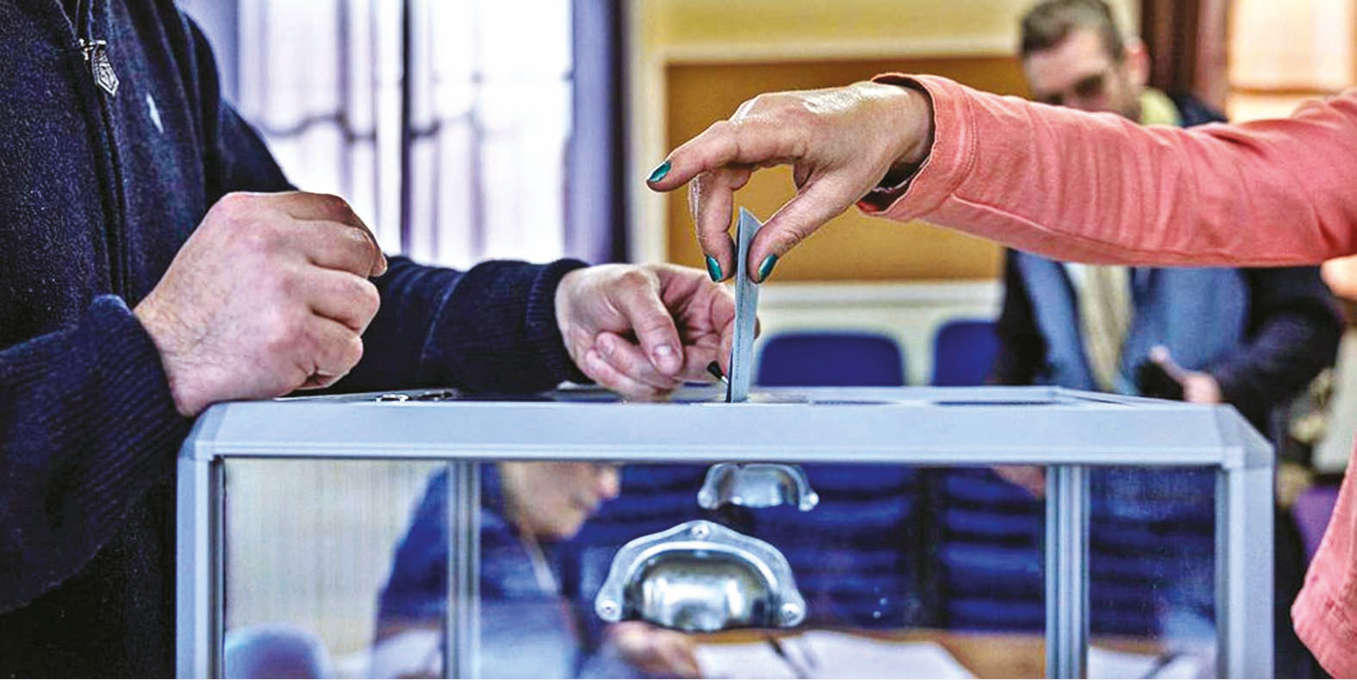France’s presidential election matters to us all
Marine Le Pen, the right-wing nationalist challenger to incumbent Emmanuel Macron in the presidential election, has long been a Putin admirer. If French citizens make the wrong choice on April 24, they will not be able to use ignorance as a defence.

CHENNAI: In open societies, there is a close relationship between a responsible and uncensored media on the one hand and democracy and the rule of law on the other. Properly informed citizens in democracies take their share of responsibility for what their government does. One must hope French voters do so on April 24 by ensuring that the incumbent Emmanuel Macron defeats Marine Le Pen, his right-wing nationalist challenger, in the second round of the country’s presidential election.
By contrast, autocracies depend on their ability to exert maximum control over most aspects – political, economic, social, and cultural – of a country’s life. And fundamental to that control is determining what the public are allowed to know about what is really happening in and outside their own society. To prevent growing criticism and unrest, non-democratic governments must stamp out free speech and inquiry, spread false news, and create a narrative that supports authoritarian rule. In China, for example, the authorities describe the repression of Muslim Uyghurs in Xinjiang as simply limited anti-terrorism measures and peaceful re-education.
Any suggestion that Muslims are locked up in camps, tortured, and separated from their children, or that women are subjected to forced sterilisation and abortions, is blacked out. Some human-rights lawyers argue that these policies are crimes against humanity and perhaps even examples of genocide. In Hong Kong, a once-free city now handcuffed by the Chinese government, journalists are jailed on trumped-up charges, and media outlets are silenced and shut down.
If the city is not yet entirely a police state, thuggish security officials certainly now run it. The former policeman John Lee, tapped by the authorities in Beijing to be Hong Kong’s next chief executive, plainly believes that any questioning of government policies is tantamount to sedition. Lee knows nothing about economic and social issues but everything that a puppet of the Chinese government might need to know about how to lock people up. Likewise, in Russia, years of state control over the media and shameless mendacity have helped to mold public support for President Vladimir Putin’s war against Ukraine, which has been marked by the cold-blooded killings of citizens and the destruction of their homes and, indeed, of entire cities.
The Russian public have long been told that Ukraine is run by neo-Nazis, that the country represents the sharp end of a NATO threat to Russia’s security, and that Russian speakers in Ukraine have been the victims of genocidal attacks. Given all these lies, it is not surprising that most Russians appear to support Putin and his Kremlin apparatchiks despite the growing number of body bags returning to the country.
After indoctrination, many Russians confuse black and white. Other countries with illiberal though not wholly authoritarian governments take a similar line on free speech. In Hungary – which is still a member of the European Union despite Prime Minister Viktor Orbán’s routine contempt for the EU’s fundamental values – the media is largely controlled by government cronies.
Orbán secured his recent election victory in part through corrupt use of funds that his government received from Brussels. He is currently the weakest link in the EU and NATO’s strong opposition to Russia’s war in Ukraine. But Orbán is not the only European political leader in this camp. Le Pen, whose campaign for the French presidency is partly funded by a loan from a Hungarian bank close to Orban, has long been a Putin admirer and recently called for the West to stop supplying weapons to Ukraine and vowed to withdraw France from NATO’s integrated military command if she wins.
Campaign gloss cannot disguise Le Pen’s extremist views, and Putin must certainly be hoping that she prevails. No one in France – or in other democracies where extreme nationalist leaders appear to sympathise with Putin – can pretend to be unsure of what is happening in Ukraine or about the fate of those in Russia who bravely oppose the war.
French voters have all the information and evidence required to make a serious choice about their attitude to the evil that Putin represents. They do not have the excuse of Russians or Chinese, who are denied a free media environment. But there will doubtless be no shortage of excuses should Europe or America’s resolve vis-à-vis Ukraine fracture, as Putin hopes it will in due course. For some, economic grievances will override any moral concerns. Just as greed often trumps any concern about human rights when dealing with China, so the prospect of having to pay higher energy bills will blind some to Putin’s crimes.
At the insidious core of much populist nationalism is a narrow view of the nature of community, which overwhelms any acceptance of civic and humanitarian responsibility. Ukraine’s biggest weapon is the courage of its citizens. In the rest of Europe, our commitment to the values that should underpin open democracies is on the line. This is at the heart of the judgment that French voters must make in the presidential election. France, which has done so much since the European Enlightenment to promote and defend liberty, equality, and fraternity, is once again engaged in a struggle for these virtues. Macron’s political fight is democracy’s fight, too. If French citizens make the wrong choice on April 24, they will not be able to use ignorance as a defence.
Chris Patten, the last British governor of Hong Kong and a former EU commissioner for external affairs, is Chancellor of the University of Oxford.
Project Syndicate
Visit news.dtnext.in to explore our interactive epaper!
Download the DT Next app for more exciting features!
Click here for iOS
Click here for Android



